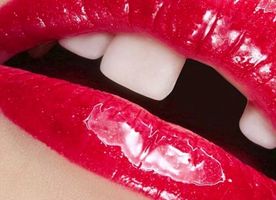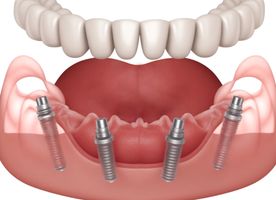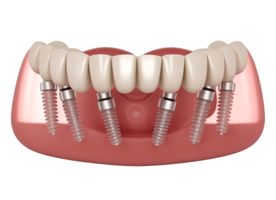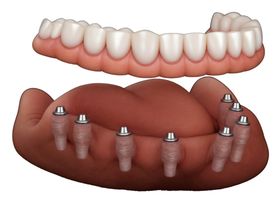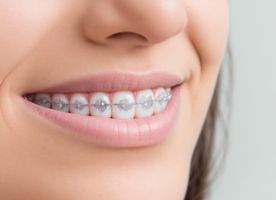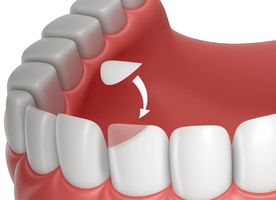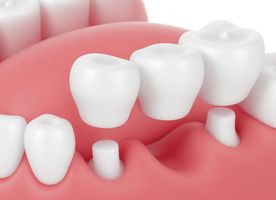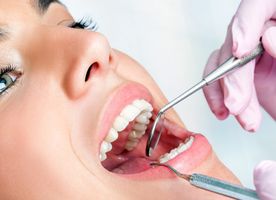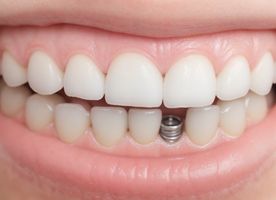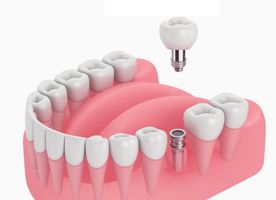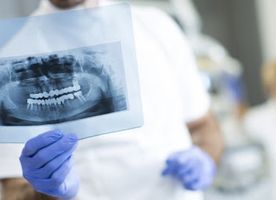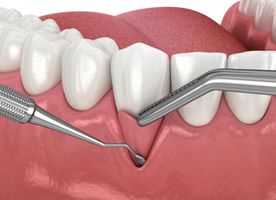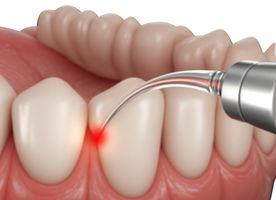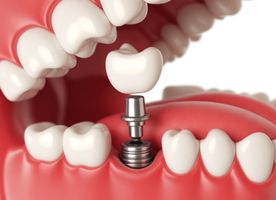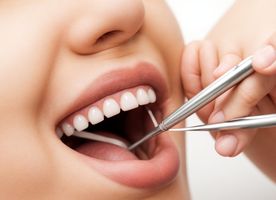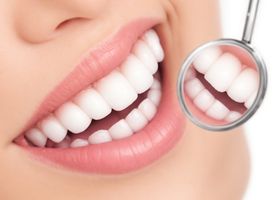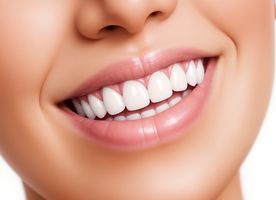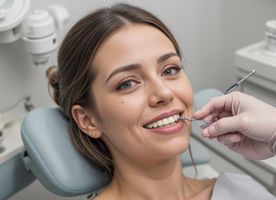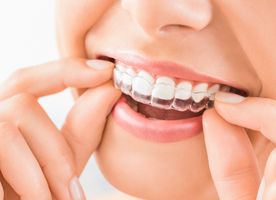Dentistry in Ireland
Search and Compare the Best Clinics and Doctors at the Lowest Prices for Dentistry in Ireland
Sandyford Healthcare





Dentistry at Sandyford Healthcare in Dublin, Ireland
Dublin Chiropractic and Disc Centre


Dentistry at Dublin Chiropractic and Disc Centre in Dublin, Ireland
Our partner clinics in Ireland are accredited by the following associations

No Time?
Tell us what you're looking for and we'll reach out to the top clinics all at once
WHY US?

No Time?
Tell us what you're looking for and we'll reach out to the top clinics all at once



Dentistry, also known as oral medicine and dental medicine, is a branch of medicine that comprises the study, prevention, diagnosis, and treatment of disorders, diseases, and conditions of the teeth, supporting structures, and the soft tissue of the mouth. Although the field of dentistry is mainly associated with teeth among the general public, it is actually not limited to teeth but also encompasses the treatment and conditions of the jaws and oral cavity, such as cleft palate.
In addition to general practice, dentistry has a number of specialties and subspecialties, including:
- Orthodontics and dentofacial orthopedics – this involves the straightening of teeth and the modification of midface and mandibular growth. While orthodontics involves the management of tooth movement, dentofacial orthopedics entails the guidance of facial growth and development, which mostly occur during childhood.
- Pediatric dentistry – also known as pedodontics, pediatric dentistry is a dental specialty dealing with the care of children’s teeth.
- Periodontics – this dental specialty is concerned with the prevention, diagnosis, and treatment of diseases of the periodontal membrane, as well as related tissues surrounding and supporting the teeth.
- Prosthodontics – this dental specialty involves the restoration and maintenance of oral appearance, function, and comfort using prostheses, such as crowns. This specialty also provides oral prostheses to correct deformities, such as cleft palate.
- Endodontics – this involves the prevention, diagnosis, and treatment of diseases of the dental pulp, as well as the surrounding tissues.
- Public health dentistry – this dental specialty’s primary concern is the prevention of dental decay and periodontal disease (disease of tissues that surrounds the teeth). On a larger scale, it involves the improvement of oral health in large populations.
- Oral and maxillofacial surgery – this involves the extractions, implants, and surgery of the mouth, jaws, and face.
- Oral and maxillofacial radiology – this involves the study and radiologic interpretation of oral and maxillofacial diseases.
- Oral and maxillofacial pathology – this involves the study, diagnosis, and, in some cases, treatments of oral and maxillofacial related diseases.
- Special needs dentistry – this specialty deals with dental treatments for those with developmental and acquired disabilities.
- Geriatric dentistry – also known as geriodontics, this specialty delivers dental care to older adults and involves the prevention, diagnosis, and treatment of problems associated with age-related diseases.
Dental treatments are performed by a dental team, which usually consists of dentists and dental auxiliaries (dental hygienists, dental assistants, dental technicians, and dental therapists).
What does the Procedure Involve?
A range of medical and cosmetic procedures are used to diagnose and manage issues that affect the jaws, teeth, and oral cavity. The following are some of the most common dental procedures:
- Comprehensive examination – this type of procedure evaluates your overall oral health. A comprehensive dental exam typically includes dental evaluation, dental health assessment, bite and jaw examination, cavity check, restoration examination, teeth cleaning and stains removal, dental X-Rays, oral cancer screening, medications review, and a lesson on oral hygiene. A general dentist will discuss with you your current oral health, including your risk of gum disease, tooth decay, and any other oral health problems they may have seen through the examination. If any potential issues are found, your dentist will give you their prevention recommendations.
- Routine cleanings – this type of procedure is carried out to remove the buildup of tartar and bacteria that accumulate in between your teeth and gums. Routine mouth cleaning is important to maintain good oral health.
- Dental bonding – this procedure is used to repair decayed, chipped, discolored, or fractured teeth, as well as to reduce gaps between teeth. It can also be used to build up older teeth in order to make them appear younger. The goal of the procedure is to improve a person’s smile. During this procedure, your dentist will apply a tooth-colored resin to your teeth. Then, the resin is hardener under an ultraviolet laser or light. Afterward, the resin material is shaped and polished to ensure the result looks natural and smooth.
- Braces – a dental brace is a device used to correct crooked or misaligned teeth. It can improve the health and appearance of your smile. It works by exerting steady pressure over time to gradually move your teeth into alignment.
- Crowns and caps – a dental crown or cap is a tooth-shaped cover that is placed over a decayed, broken, badly stained, or misshaped tooth to improve its size, shape, strength, and appearance. Dental crowns can be made of porcelain fused to metal, metal, ceramic, or resin. Before a crown is placed, the existing tooth is filed down. Then, the crown is applied over it using special cement, thus fully encasing the tooth. The whole process is usually performed under local anesthetic.
- Bridges – Dental bridges are used to close (or bridge) the gaps in your teeth if you have missing teeth. A dental bridge is a false tooth held in place by abutment teeth on either side of the gap. It can be made from a wide variety of materials, even gold. However, dental bridges are typically made from porcelain to make it blend in with your natural teeth.
- Implants – Dental implants are replacement tooth roots made of titanium that provide a strong foundation for the attachment of removable or permanent crowns. It is done to replace damaged or missing teeth. Dental implants can look and function much like real teeth. The process of placing a dental implant can be done under local anesthesia with sedation or general anesthesia.
- Extractions – a severely damaged tooth due to excessive tooth decay or tooth infection that cannot be saved needs to be pulled out. Tooth extractions may also be done to resolve crowding, as well as for those who get braces. Tooth extraction procedure can be simple or surgical, depending on the state of your tooth. Simple tooth extraction is usually performed under local anesthetic, while surgical tooth extraction may involve general anesthesia.
- Dentures – dentures are removable replacements for missing teeth. They can be complete or partial. Partial dentures are used when some of your natural teeth still remain, while complete dentures are used when all of your teeth are missing.
- Gum surgery – mostly known as periodontal surgery, this type of procedure is often required to treat certain gum conditions and diseases, such as periodontitis or gingivitis. Its goal is to treat the gum disease and any damage it may have caused.
- Filling and repairs – to treat a cavity, the decayed portion of the tooth can be removed and then “filled.” Fillings can also be done to repair broken or cracked teeth.
- Veneers – Dental veneers are custom-made shells designed to cover the front surface of your teeth. They can change the color, size, shape, and length of your teeth to improve your appearance. It can be made from resin composite or porcelain. However, the most popular material is porcelain as they look more natural than composite veneers.
- Root canals – this procedure is done to repair and save a tooth that becomes infected or badly decayed. The root canal procedure involves removing the pulp and nerve from a tooth. The inside of your tooth is then cleaned and sealed. This procedure can prevent the tissue that surrounds the tooth from being infected.
How Long Should I Stay in Ireland?
Your length of stay depends on the type of procedure you get. For most dental procedures, you can leave the clinic or hospital on the same day. However, if you undergo a surgical procedure, then you may need to stay in the hospital for a few days. Note that most dental procedures require multiple appointments to complete. Therefore, although you can leave the hospital on the same day, you may need to stay in Ireland for several days or weeks until all of your appointment is completed. In some cases, you may need two separate travel to Ireland.
What's the Recovery Time?
Recovery time can be different from one person to another, depending on the procedure you undergo, the reason you need the procedure, and your general health. Your dentist will give you a recovery timeline, which includes the time frame when you can go back to work, resume your normal routine, and perform vigorous activities, such as exercise.
What About Aftercare?
Your dentist will give you aftercare instructions that you will need to follow. The instructions may include diet, restrictions, and how to care for the treated area. You may feel some discomfort and pain for the first few days and your dentist may prescribe pain medications. Make sure to take the medications as instructed.
To maintain the result of your procedure, it is important that you practice good oral hygiene. Always brush your teeth at least twice a day, floss daily, and rinse your mouth with an antiseptic mouthwash every day. It is also important that you have dental examinations regularly. In addition, you need to avoid damaging habits, such as biting your nails or chewing hard items.
What's the Success Rate?
The field of dentistry is constantly improving and advancing. Experienced and skilled dentists should be able to provide high success rates for the procedures they perform. Still, risks and side effects are possible. These include nerve injury, infection, bleeding, and damage to surrounding structures. To avoid these risks and side effects, make sure to choose a certified dentist with proven track records.
Are there Alternatives to Dentistry?
Any problems in your jaw, teeth, and oral cavity are diagnosed, treated, and prevented by the practice of dentistry. Therefore, there are no other alternatives than to see your dentist. However, if your problem is found to be caused by other diseases, your dentist may refer you to the relevant doctors.
This information has been accurately sourced and verified by a medical professional for its accuracy, however, we strongly recommend you to consult with your doctor before pursuing medical procedures overseas.










